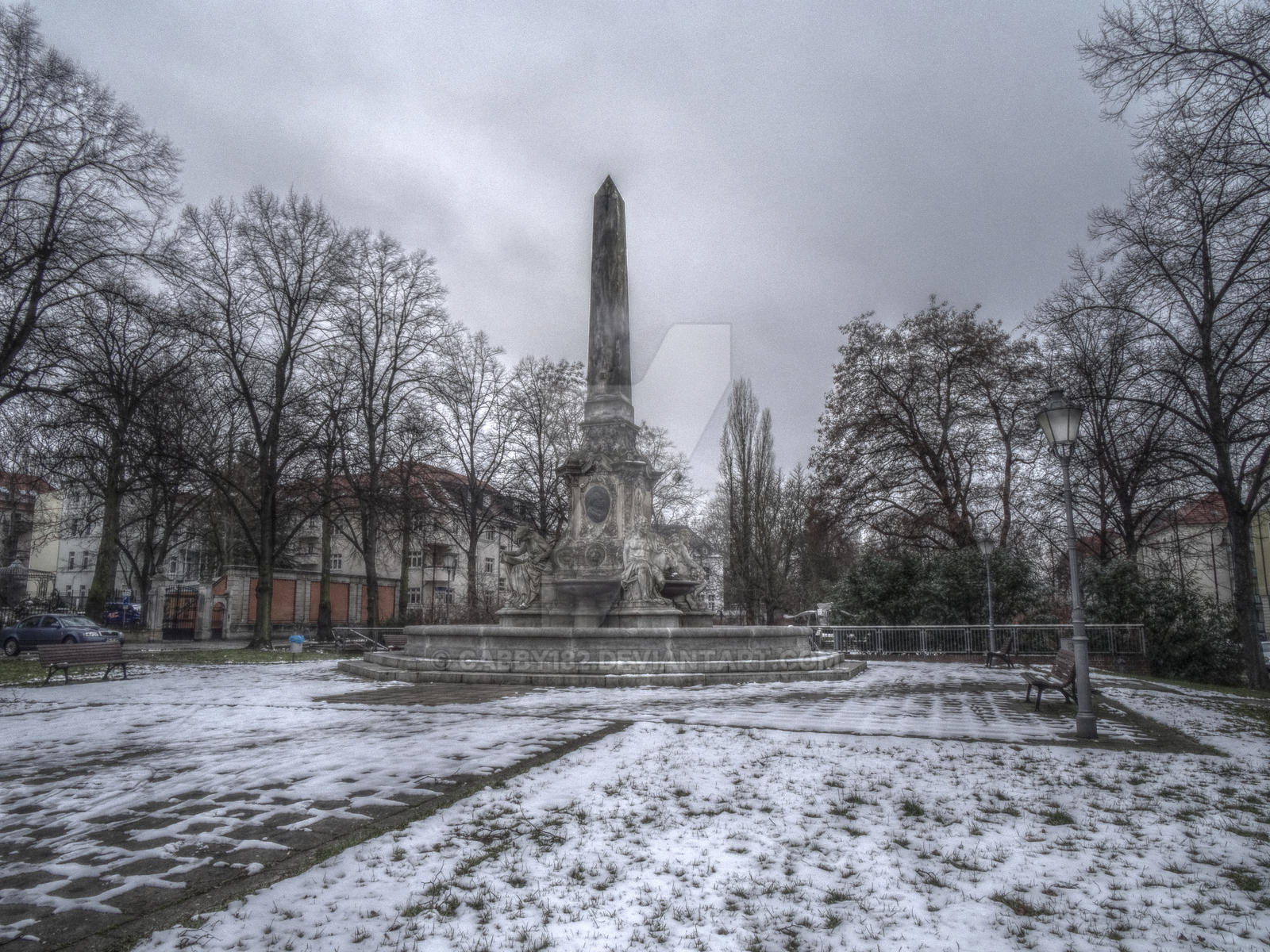Carl Gustav Friedrich Hasselbach
Carl Gustav Friedrich Hasselbach ( born March 21, 1809 in Stettin, † April 21, 1882 in Magdeburg ) was Privy Councillor, local politicians and more than 30 years ( Upper ) mayor of the city of Magdeburg.
Life
He was the son of the Prussian Council of Justice Gustav Hasselbach (1778-1818) and Charlotte born Cober († 1823). Hasselbach first attended in Szczecin school and then studied at Göttingen and Berlin, legal and Kameralwissenschaften. In 1830 he entered the Prussian civil service. In 1836 he was deputy Departementsdomänrat to Magdeburg. In 1839 he was appointed to the Executive Council and, after Gumbinnen. After a brief re- occupation in Magdeburg in 1842, he was transferred to the royal house ministry. After his appointment as Senior Government department, he was a conductor in Minden.
On August 20, 1851, he was elected the first mayor in Magdeburg. This election was preceded by violent political clashes. 1848, resigned because of conflicts in the Revolution of 1848, the last mayor August Wilhelm Francke. Magdeburg decreed for 3 years does not have a mayor. In the City Council was a strong liberal majority. Possible liberal candidate was Victor von Unruh. As a mayor had to be confirmed by the Crown, was to enforce a liberal mayor in the result of the failed revolution 1848/1849, no view. All the more so since in the city a strong free religious community existed under Leberecht Uhlich, which was seen by the government as a political threat. The conservative and royalist Hasselbach was therefore given up the fight against this community.
However, Hasselbach was found to compromise over the city council and caused quite a significant stabilization of the political situation in Magdeburg. Speaking at a groundbreaking ceremony for a reconstruction of the Augustinian Monastery in October 1853, succeeded Hasselbach the King of Prussia to win a visit to the city. The king had shunned the city since the rise of the outdoor community in 1848. After this visit, the extremely conservative Hasselbach was appointed mayor.
In the tenure Hasselbachs the development of the city fell into a modern industrial and urban. There several important modernization were initiated. The construction of the water works Buckau, regulating the sewage question, gas lighting and street paving were made. 1862 a new phase bridge over the Elbe was inaugurated. However, most important project was the expansion of the city. Magdeburg was fortified city and therefore very limited in its extent by the fortifications. However, the development of the modern city made an extension is required. Settlements of industries within the city was practically impossible and, therefore, were made in the suburbs, particularly in Buckau. 1867 was the first incorporation Sudenburgs. 1871 succeeded in Magdeburg large parts of the castle grounds to the west and south of the city, a total of 54 hectares, acquire, for which credits were taken. The regions so obtained ( in the west to the railway station road in the south to today's Hasselbachplatz ) were built until 1885. It originated private buildings but also urban facilities, such as schools, the Municipal Theatre and the guard of the professional fire brigade, which are partly preserved until today. 1874 a new central station was built on that site, the Magdeburg again gave a great importance for the railway. With the expansion of the constriction of the city was breached. Magdeburg developed into an industrial city. There arose the great engineering works of Rudolf Wolf; Hermann Gruson and Schäffer & Berg Bude.
Politically conservative and remained Hasselbach belonged various organizations conservative and clerical orientation. So he refused to conduct a funeral service for the freeman Leberecht Uhlich the provision of the town hall hall. He fought with government funds the resulting social democracy.
1881 Hasselbach was to his 30 years of service, honorary citizen of the city and left office. A short time later he died.
Honors
In November 1890, the city of Magdeburg put him at the southernmost point reached by him of urban expansion, today Hasselbachplatz, a monument. After Hasselbach both a road ( Hasselbachstraße ), as well as a place ( Hasselbachplatz ) was named in the expansion area.










